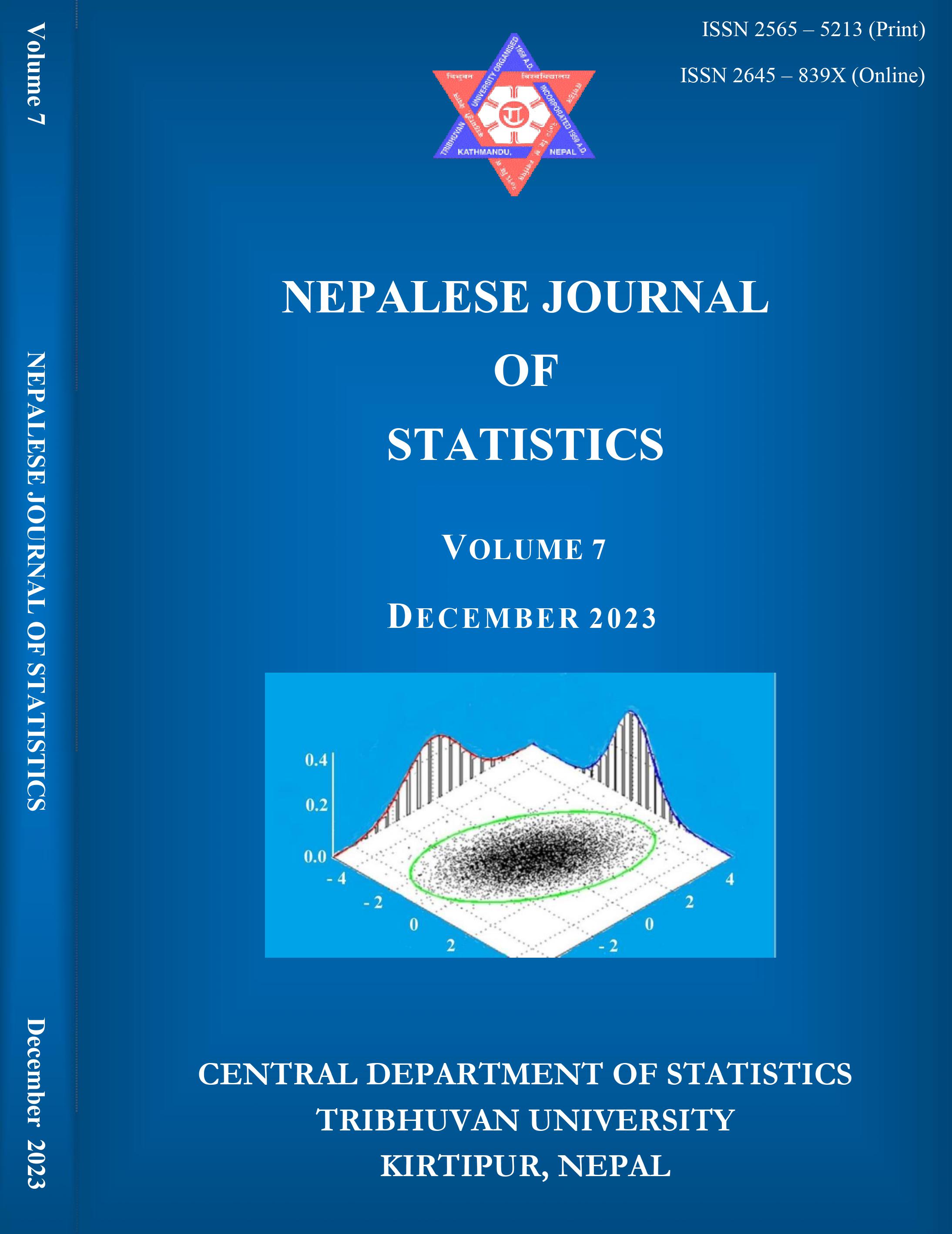Factors Affecting Academic Performance of M. Sc. Level Students at Tribhuvan University
DOI:
https://doi.org/10.3126/njs.v7i1.61055Keywords:
Academic performance, ANOVA, multiple linear regression, M. Sc. level students, Tribhuvan UniversityAbstract
Background: Several factors contribute to a student's academic performance. Studies have examined the direct impact of student-related factors and the broader influence of social and economic factors.
Objective: To identify the important factors influencing the academic performance of Master's level students at the Institute of Science and Technology (IoST), Tribhuvan University (TU).
Materials and Methods: Primary data of 251 master’s level students was collected with a questionnaire adapted and developed from similar studies. The data was collected using convenience sampling. In addition to demographic and categorical questions, five-point Likert scale questions were also used. Data analysis involved fitting a multiple linear regression (MLR) with the identified significant independent variables. The goodness of fit of the model was evaluated to assess the accuracy and reliability of the final model in explaining variations in students' SGPA (Semester Grade Point Average).
Results: The study revealed that students' motivation, study habits, and communication skills significantly influenced their SGPA. Study habits showed a coefficient of 0.118 (p < 0.001), indicating a positive and significant relationship with SGPA. Student motivation had a coefficient of 0.19 (p < 0.001). Similarly, Higher levels of motivation were linked to improved SGPA outcomes. Communication skills exhibited a coefficient of 0.086 (p < 0.001) at a 5% level of significance. All these factors had a positive coefficient which means students better on these factors on an average will tend to have better academic performance.
Conclusion: Study habits, motivation, and communication skills were found to have a significant effect on students’ SGPA. Therefore, we can conclude that at the master's level in IoST, TU, the primary determinants of students' SGPA are their characteristics such as their motivation, study habits, and communication skills.
Downloads
Downloads
Published
How to Cite
Issue
Section
License
© Central Department of Statistics, Tribhuvan University, Kirtipur, Kathmandu, Nepal
The author of article must sign the copyright permission or the author must assign copyright to the Central Department of Statistics, Tribhuvan University prior to publication.
All rights reserved.




